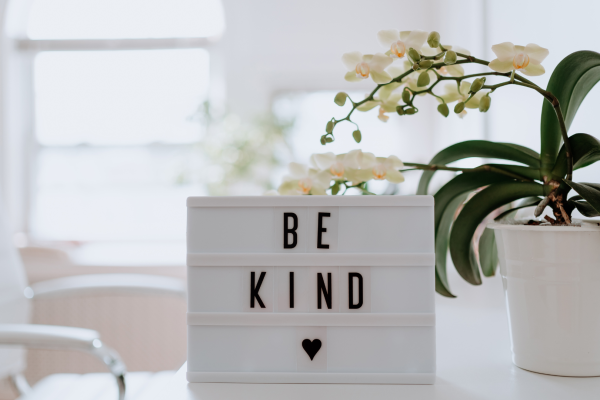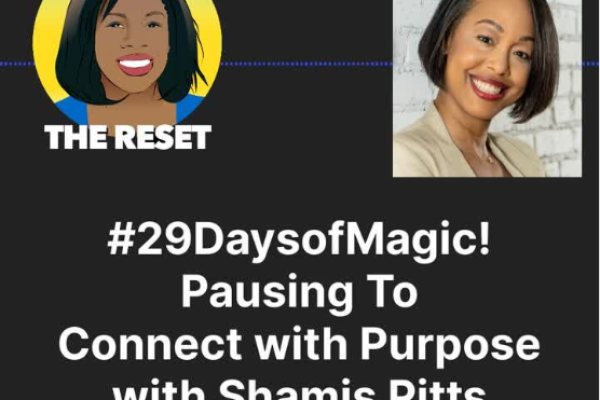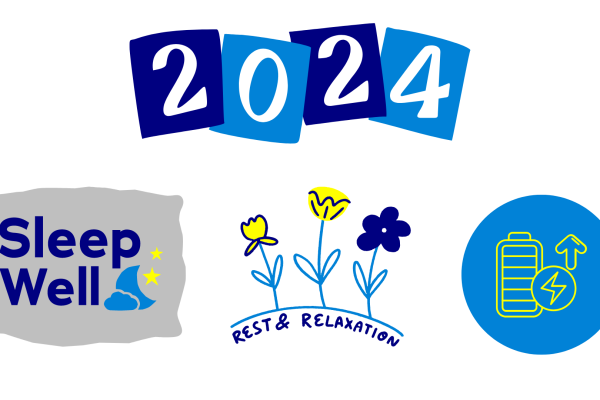Comments (0)
How To Listen Effectively To Succeed Personally And Professionally: An Interview With Doug Noll
The article, Shamis Pitts of Pitts Leadership Consulting (PLC) On How To Listen Effectively To Succeed Personally And Professionally, An Interview with Doug Noll, originally appeared in Authority Magazine.
https://medium.com/authority-magazine
Copyright © March 2023. Reprinted with permission.
It’s hard to be a good listener. We are programmed to want to talk, and to share. It takes effort to stop and to listen. But anyone who has achieved great success will tell you that listening is such an important quality to have. What are some ways that influential people have learned to listen, to succeed both personally and professionally?
Thank you so much for doing this with us! Before we start, our readers would love to “get to know you” a bit better. Can you tell us a bit about your childhood backstory?
I grew up in suburban Maryland outside Washington, D.C. in a culturally diverse home and operated in circles that were racially, socio-economically, religiously and ethnically diverse. My parents valued education — inside and outside of the classroom — and ensured that I had access to opportunities that they didn’t have. I enjoyed the discipline and structure of school, dance class and work, i.e., babysitting and my paper route. I credit my upbringing for why I am comfortable connecting with and learning from so many different types of people.
Can you please give us your favorite “Life Lesson Quote”? Can you share how that was relevant to you in your life?
My favorite quote is the African proverb, “If you want to go fast, go alone. If you want to go far, go together.” The leader of my coaching certification program re-introduced me that quote a few years ago and it has been top-of-mind ever since. While I have always been focused on serving others along my career journey, I have been much more intentional about how I engage with the communities that I belong to. That runs the gamut from my various alma maters to my fellow entrepreneurs to my volunteer service.
Is there a particular book, podcast, or film that made a significant impact on you? Can you share a story or explain why it resonated with you so much?
I know that I am not the first, and will certainly not be the last, to name Simon Sinek’s “Start with Why: How Great Leaders Inspire Everyone to Take Action.” I believe clarity and commitment to purpose is an integral part of our life and work journeys. I find the content inspiring and practical. Several years ago, I gave the book to every graduating high school student in a mentor program I volunteered with because I wanted them to have a resource they could leverage as they moved into the next phase of life.
Let’s now shift to the main part of our discussion. Let’s begin with a definition of terms so that each of us and our readers are on the same page. What exactly does being a good listener mean?
Being a good listener means that you are giving someone your focused attention while they are speaking and that you are able to demonstrate or signal that you are engaged in the conversation.
Why is effective listening such an important quality? Can you give a story or example to explain what you mean?
Listening is a powerful tool in leadership and in life. Why? Most things that we do happen by engaging with other people via various forms of communication, of which listening is one. We are constantly acquiring, sorting and digesting information, some of which is important and some that is not. When we are not listening, we simply miss information that we may or may not need. Even when we are listening, we still may misinterpret what someone is saying. That’s why we are specifically talking about “effective listening.” Effective listening is an important quality because it enables us to acquire, sort and digest information with greater speed and clarity. It is more efficient.
I used to write a lot of things down to help me remember what people say. I am a self-described high-information person. Now, I don’t have as much of a need to capture in writing all of the key details that people tell me. (Well, I have a lot of clients, so I still write down a few things.) I amaze myself and my clients with the amount of information I retain and recall over time.
From your experience or perspective, what are some of the common barriers that hold someone back from being a good listener?
The biggest barrier to being a good listener is distraction. People have too many things that undermine their focus and, therefore, are not truly present. While they are attempting to listen, they are multitasking, or they are located in a physical environment that is noisy and/or filled with visual clutter. Or people simply have something on their mind that is more important to them than whatever they are listening to at that particular moment.
Can you please share a few practical techniques that have helped you become a more effective listener?
First and foremost, eliminate the distractions. Pause notifications, find a quiet space and do not attempt to do 5 other things while you are having the discussion. Additionally, be clear why actively listening to the person at that moment is important to you. If you can work on those things, that is half the battle!
Another tip is to listen to your body. I sit (or stand, if in a room with others) with an open stance, feet firmly planted on the floor. I may mirror the body language that I am seeing. If I am seated, I am usually sitting upright in such a way that I can easily stand, if I need to. My point is that it is an active posture that allows me to be attentive to and in tune with the other person.
I also repeat back what I hear using the language of the person I am listening to. I consciously avoid substituting in my own language, which can change the meaning of what the person wanted to convey. Most importantly, I ask for clarification, if needed, which minimizes assumptions.
Finally, if you are in the presence of the person, whether in-person or virtually, eye contact is a must-have not a nice-to-have. My husband gets annoyed when I am not listening to him. I tell him, “If I am not looking at you, assume I am not listening.” I can easily parrot what he was saying, but I certainly did not process the information. We have a good chuckle when he catches me in the act.
Here is the central question of our discussion. What are five ways that listening effectively can help someone succeed personally and professionally? If you can, please share a story or an example for each.
1 . Builds trust. I believe trust is the most important outcome of effective listening. People feel valued when they are listened to. They may want to vent or they may want you to take action based on what they shared. Either way, your listening to them matters. This is true both in the workplace and at home. When I effectively listen with clients, they feel a high sense of trust and share more with me, which enables me to support them more effectively.
2 . Increases access to information. People often seek perfect information, but that does not exist. We usually have to settle for optimal information, that is, what is available at a given point in time. When we effectively listen, we access greater amounts of information. We are not only in a better position to discern the quality of the information we are receiving but also more equipped to identify information gaps. I truly believe that there would be fewer meetings and meeting quality would increase if people actually listened effectively.
3 . Enhances quality feedback. Knowing how to give and receive quality feedback with your manager, peers and direct reports is a skill. Effective listening is a tool to facilitate having those important conversations. Note: Sometimes the most significant parts of my client conversations are when I probe into what clients are not saying. I am listening between the lines. Be mindful!
4 . Builds credibility. People who are known as effective listeners have a tremendous amount of respect within organizations. If people do not believe that you are an effective listener, it can hurt your personal brand. You do not want to become known as the person who does not listen. It creates a trust issue at work. The same can be said at home.
5 . Builds capacity. This may seem obvious, but when we effectively listen, we learn. This ties back to information access. When we determine where the information gaps exist, we can then determine what actions we need to take to close them. Often times, that involves some form of learning, where we explore, interpret, generate insights and solve. We talk to others, engage with ideas and content. We expand our understanding of what’s possible.
You are a person of great influence. If you could inspire a movement that would bring the most amount of good to the most amount of people, what would that be?
I believe that a movement that centers the power of curiosity can change the world. We are living in a world where there is increasing polarization. People are focused on win-lose, us vs them. Everything is zero-sum. In order to combat binary viewpoints, curiosity can enable our ability to question assumptions and introduce the openness and vulnerability needed to facilitate informative and productive conversations. The desired outcome would be greater perspective-taking, understanding and learning. Effective listening is an integral part of that process.
Is there a person in the world whom you would love to have lunch with, and why? Maybe we can tag them and see what happens!
I would love to have lunch with Jane Fraser, CEO of Citigroup. She cares about the things that I care about — individual and organizational wellbeing — knowing that both are the key to performance and outcomes. She “walks the talk.” With some of the changes they are making, Citi can serve as a model for other organizations to demonstrate that change at scale is possible.
How can our readers continue to follow your work online?
I welcome folks to connect with me on LinkedIn and check out the PLC website.
Thank you so much for sharing these important insights. We wish you continued success and good health!
Thanks for providing me with the opportunity to share my insights with your readers, Doug.




LEAVE A REPLY
Your email address will not be published. Required fields are marked *